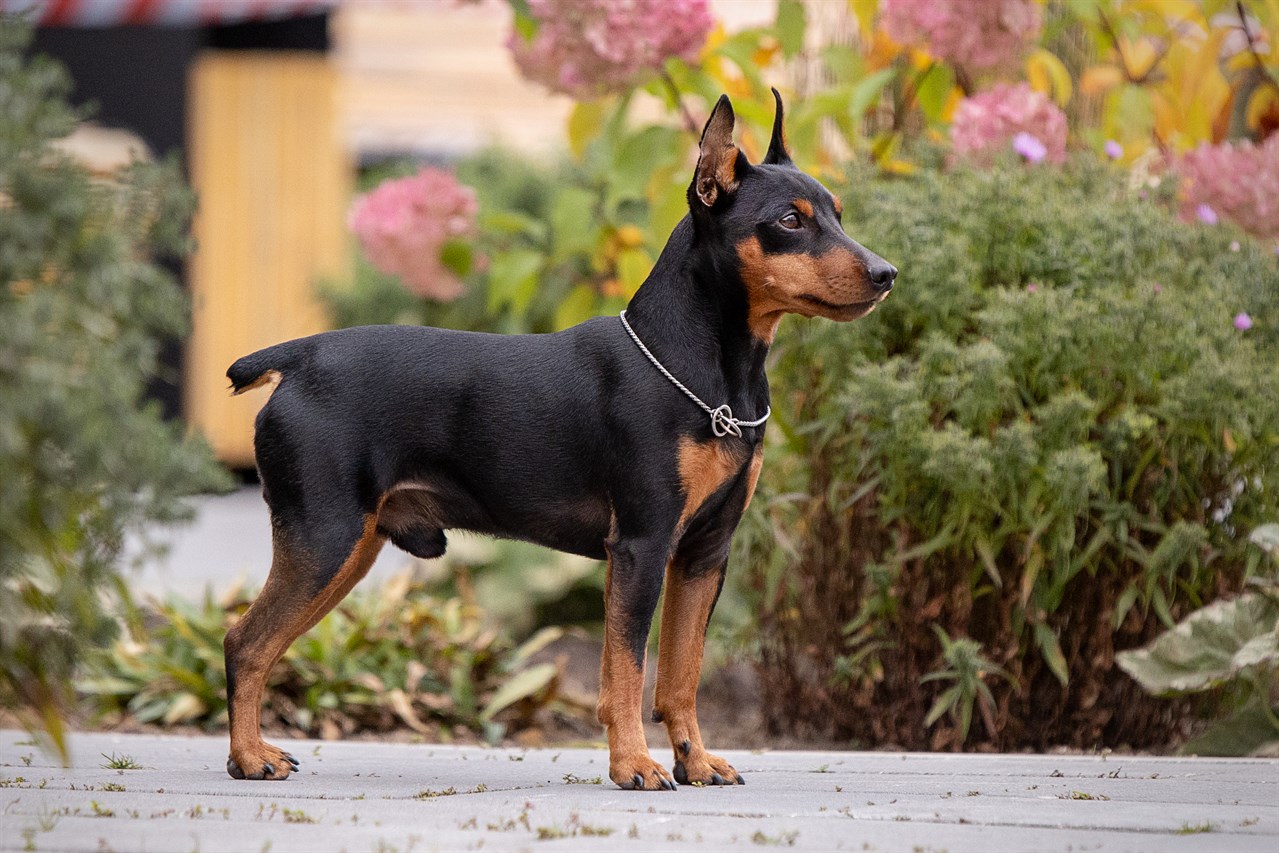Feeding Habits and Food Requirements of Miniature Pinschers

Proper nutrition is crucial for the health and well-being of Miniature Pinschers. These spirited dogs have specific feeding habits and dietary requirements that owners should be aware of to ensure they maintain an ideal weight and overall health.
Feeding Frequency
Miniature Pinschers are typically fed two meals a day. Splitting their daily food intake into two portions helps maintain a steady energy level and prevents overeating.
Portion Control
Portion sizes should be appropriate for your Miniature Pinscher's age, size, activity level, and metabolism. It's important to follow the feeding guidelines on the dog food packaging or consult with your veterinarian for specific recommendations.
High-Quality Dog Food
Feed your Miniature Pinscher a high-quality commercial dog food that meets the nutritional requirements for their life stage (e.g., puppy, adult, senior). Look for a food with real meat as the primary ingredient and avoid products with excessive fillers and artificial additives.
Avoid Overfeeding
Miniature Pinschers are prone to obesity if overfed. Be mindful of treats and table scraps, as excess calories can quickly lead to weight gain. Stick to portion control and offer healthy treats in moderation.
Fresh Water
Ensure your Miniature Pinscher has access to fresh, clean water at all times. Proper hydration is essential for their health and digestion.
Dietary Considerations
Some Miniature Pinschers may have food allergies or sensitivities. If you notice signs of gastrointestinal distress, skin issues, or allergies, consult with your veterinarian to determine if a dietary change is necessary.
Specialised Diets
If your Miniature Pinscher has specific health concerns or dietary needs, such as weight management or food allergies, your veterinarian may recommend a specialised diet. Always follow your vet's guidance regarding your dog's nutritional requirements.
Age-Appropriate Diet
As Miniature Pinschers age, their nutritional needs may change. Senior dogs may require a diet formulated to support joint health and address age-related issues. Consult with your veterinarian to determine when to transition to a senior-specific formula.
Common Feeding-Related Issues
Miniature Pinschers can be picky eaters, so finding a food they enjoy may take some trial and error. Be patient and consult with your vet if you encounter feeding challenges. Avoid feeding human foods that are toxic to dogs, such as chocolate, grapes, raisins, onions, and garlic.
In summary, Miniature Pinschers thrive on a balanced and high-quality diet that meets their specific nutritional needs. Proper portion control, regular feeding schedules, and attention to their age and activity level are essential for maintaining their health and ideal weight. Consulting with a veterinarian can help ensure that your Miniature Pinscher's diet is tailored to their individual requirements and any unique health considerations they may have.
Miniature Pinscher puppies for sale
- Find Miniature Pinscher puppies for sale in ACT
- Find Miniature Pinscher puppies for sale in NSW
- Find Miniature Pinscher puppies for sale in NT
- Find Miniature Pinscher puppies for sale in QLD
- Find Miniature Pinscher puppies for sale in SA
- Find Miniature Pinscher puppies for sale in TAS
- Find Miniature Pinscher puppies for sale in VIC
- Find Miniature Pinscher puppies for sale in WA